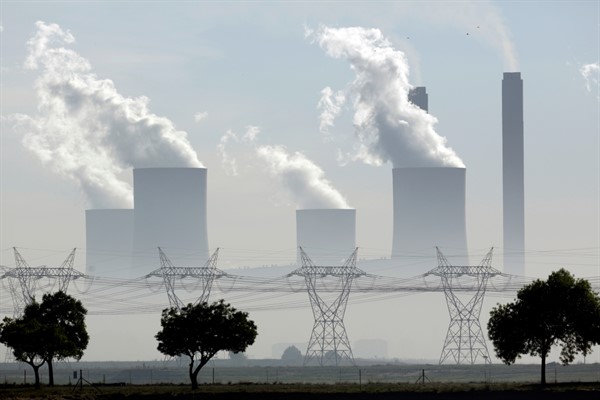Summer is the time of year when climate change dominates the public conversation, and it came earlier this year than ever before. Hurricanes are battering the Caribbean, and record heat waves—exacerbated by climate change—are scorching Europe and Western North America, with wildfires increasingly encroaching on population centers. This year, over 100,000 more acres have already burned than at the same time last year, though last year’s fire damage was record-breaking as well. Smaller, island nations are in a fight for their very survival.
In this context, global efforts to gradually reduce carbon emissions seem paltry at best. The Paris Agreement on climate change, even if it achieves its goals, aims only to limit the average global temperature rise in this century to below 2 degrees Celsius, while “pursuing efforts” to limit it to 1.5 degrees and aiming for a “leveling off” of continued global greenhouse gas emissions as soon as possible. The agreement’s achievements should not be minimized—among other things, it articulates a global consensus that climate change is human-induced and that reducing carbon emissions is necessary for human health and survival. But the agreement requires little of states other than that they report their emissions and pledge to work toward reducing them. Countries set their own reduction targets, and there are no penalties for missing them. And even the targets are all about slowing continued fossil fuel use rather than ending it. Not surprisingly, emissions continue to rise, and a new International Panel on Climate Change report leaked while in draft this week suggests the world is nearing catastrophic tipping points.
A new civil society initiative has a better idea: create a new treaty process with the aim of immediately halting new drilling for oil and aggressively phasing out fossil fuels entirely. The Fossil Fuel Non-Proliferation Treaty project has been endorsed by 101 Nobel Laureates, including the Dalai Lama, and over 400 civil society organizations. Roughly 1,200 scientists have signed on to the initiative, which was launched by scientists Peter Newell and Andrew Simms with a paper published last year. Cities are also joining a campaign that has speedily begun to do what United Nations climate diplomacy has been unable to do for 30 years: galvanize political will to make society-wide sacrifices to stem global warming.

